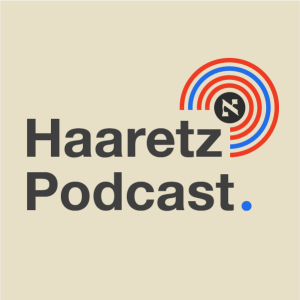
‘Some students on U.S. campuses think all Israelis are colonizers, so it's okay to slaughter them’
 2023-10-31
2023-10-31
Prof. Dov Waxman has been on university campuses for several decades and experienced bursts of unrest following violence in the region and controversy over Israeli policies since the second intifada in the early 2000s.
But what has happened since the brutal attack by Hamas on Israeli citizens on October 7 and Israel’s retaliation in Gaza, he says, “has felt qualitatively different. The atmosphere is different from anything I’ve experienced in the past. The tensions are greater. The animosity is greater, the fear is greater,” Waxman, the director of UCLA’s Israel Studies Center, tells Haaretz Weekly host Allison Kaplan Sommer.
In the past, Waxman says, he has felt that Jewish and Israeli advocacy groups tended to exaggerate the levels of antisemitism on campuses and that “it’s grossly simplistic and reductionist to conflate anti-Zionism with antisemitism.” But in the last few weeks, there have been “manifestations and expressions of anti-Zionism that are antisemitic,” and “some campuses have actually become hostile environments for Jewish students.”
Waxman believes that today, a vocal minority of students “have come to see Israel in such a negative way, to see it as essentially this kind of settler-colonial entity that has no right to exist.” He says “they have come to see all Israelis as effectively colonists and colonizers. That has led them to somehow think it’s acceptable or tolerable or defensible to slaughter innocent Israeli civilians. And it’s something that I and many of my colleagues have really been shocked by.”
Also joining the podcast is Haaretz New York correspondent Judy Maltz, who has covered anti-Israel and pro-Palestinian protests in the U.S. since the start of the war. She believes the controversies and confrontations on campuses may change the way even the most status-conscious American Jewish parents view their children’s options for higher education.
“Many parents are asking themselves ‘What would be a safer school for my kids?’ and whether they would rather send them to a place that’s safe, but maybe not as prestigious – or a place that’s prestigious but where they will have to walk around looking down as they move around campus and rush into their dorms so they don’t have to confront anything that’s very ugly.”
Like Waxman, Maltz always felt the issue of antisemitism on campuses was overblown – until recently. “That has changed now,” she says. “I really think Jewish students don’t feel safe on campuses, certainly those students that I have spoken to in the New York area. They don’t feel safe walking around with a yarmulke on their head, while students are talking about the need to resist ‘Zionist genocide by any means necessary.’ What I’m hearing from them is that they try to avoid campus. They don’t hang out.”
See omnystudio.com/listener for privacy information.
More Episodes
Create your
podcast in
minutes
- Full-featured podcast site
- Unlimited storage and bandwidth
- Comprehensive podcast stats
- Distribute to Apple Podcasts, Spotify, and more
- Make money with your podcast
It is Free
- Privacy Policy
- Cookie Policy
- Terms of Use
- Consent Preferences
- Copyright © 2015-2024 Podbean.com






